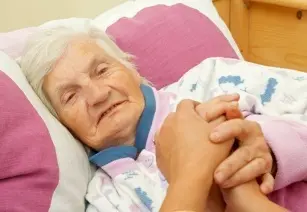
It is customary to consider a small stroke as an announcement of a more serious condition. One in ten patients will experience a true stroke within a month, and one in five in the next 12 months. Find out if the serious consequences of a minor stroke can be prevented.An alarming small stroke makes itself felt when our circulatory system is not functioning efficiently. Because disturbing symptoms pass in a short time, patients very often disregard their condition and neglect contact with a doctor.
How to recognize a minor stroke?
Usually, ischemia lasts between a quarter of an hour and an hour, after which all symptoms pass. It is from this property that the small stroke owes its name. Typical symptoms:
- sudden weakness associated with paresis and hypoaesthesia, i.e. the inability to move or feel in the legs or arms (both variants are possible at the same time),
- contortion of the face combined with the drooping of one corner of the mouth,
- problems with speech, characteristic is gibberish, including attempts to utter simple sentences,
- dizziness, loss of balance,
- eye disorders,
- loss of consciousness.
How to protect yourself from a dangerous stroke?
Since a minor stroke in 30 percent of people precedes a real one, prevention plays a significant role. It is necessary to prevent an increase in susceptibility to diabetes, atherosclerosis and arterial hypertension, because in their presence the risk of cerebral ischemia increases fivefold. People at risk of stroke should first of all avoid being overweight. Regular exercise, walking, elimination of cigarettes and alcohol turns out to be essential. The daily diet should be healthy and provide essential vitamins and minerals, and at the same time focus on healthy fats present in fish and olive oil. Let’s try to ensure the optimal dose of sleep. People who sleep less than six hours a night, or when sleep is frequently interrupted, are nearly 15% more likely to get sick. In this situation, we produce chemicals and hormones that lead to an increase in cholesterol, obesity, diabetes, heart and circulatory system diseases. However, let’s not fall into exaggeration, because sleeping more than 9 hours sometimes suggests cardiovascular disease. Scientists have shown that in the prevention of various diseases, it is best to sleep for 7 hours. A study conducted by researchers from Harvard University found that people taking vitamin E were as much as 10 percent less likely to suffer from an ischemic stroke. Let’s contact a doctor who will write a prescription for drugs in the prevention of stroke and regulating cerebral circulation (vinpocetine).









